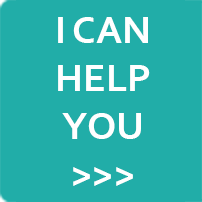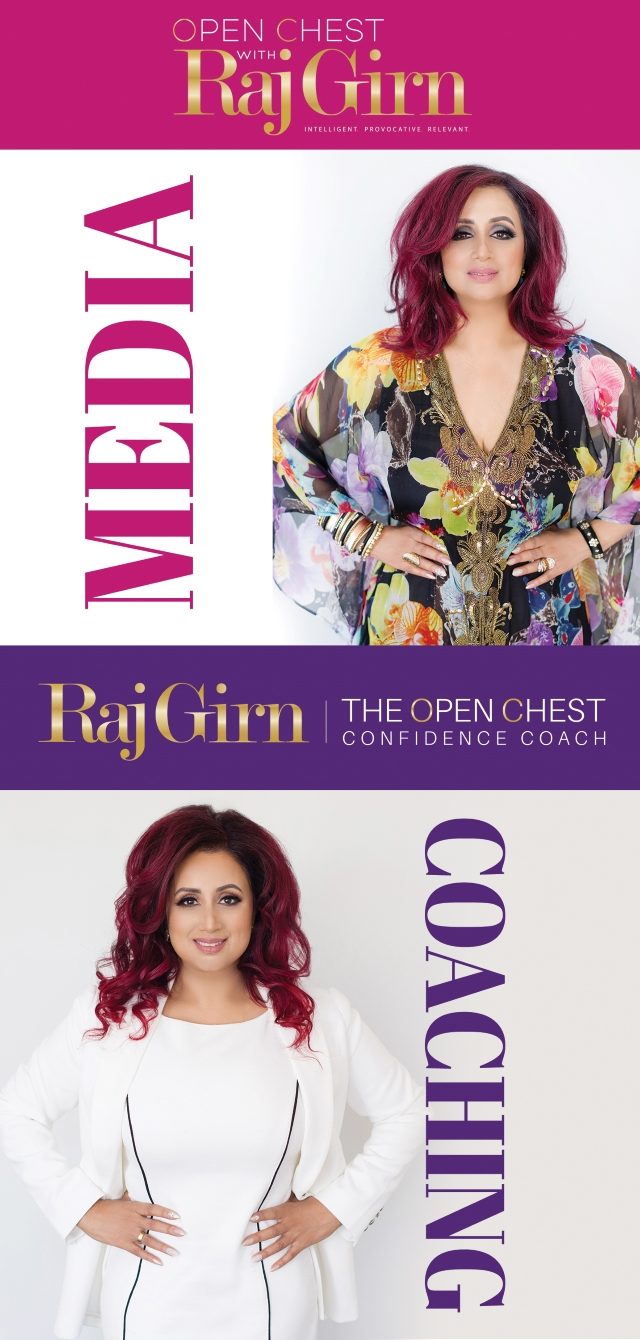I had the opportunity of participating in the South Asian Empires panel discussion towards the end of 2019, hosted by Sapna Toronto and moderated by Breakfast Television’s Meghan Yuri Young. I had the distinct honour of sharing the stage with some incredible personalities that I admire and am so proud of, like The Sandy Lion (Stylist, Educator and Influencer), Jag Malhotra (Mansha Financial), and Sathish Bala (Desifest). The greatest value of the night for me was the honesty with which everyone shared their respective stories, which in turn, allowed for so many nuggets of wisdom to be imparted. Here, I am sharing this panel discussion with you in both video and written format. I hope you like it!
WATCH THE FULL PANEL DISCUSSION BELOW
SOMETHING THEY’VE NEVER SHARED BEFORE. . .
Megan Yuri Young:
Is there anything that your fan base, your family, or even just something that you’ve never shared before that you want to share with us today?
Raj Girn:
Well, I mean, I have my son here who’s sitting in the front row so I think I do need to behave myself, albeit he does know a lot more about me than he probably should. But if I was to keep it kosher, I would say that I absolutely love to cook. I’m constantly cooking, and I love to cook Desi food. I’m full on at heart an Indian woman and I constantly want to always cook for anyone that comes to my house. I put on my waheguru when I’m actually cooking. It’s kind of a very different avatar to probably what you guys would expect of me. So, I think that that’s the most kosher one that I can share with you guys.
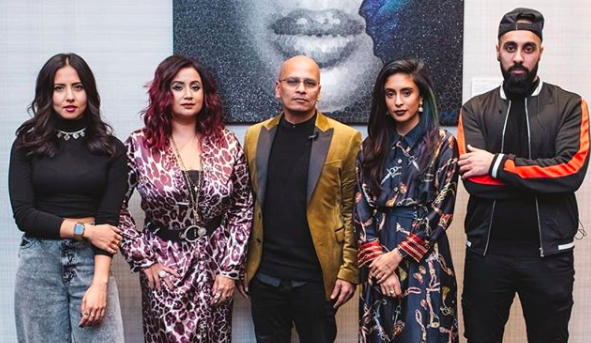
Sathish Bala:
Hi, everyone. So, I’m pretty active on social. I was trying to think of, like, what is it that I can share that people don’t know. Probably the one thing that people don’t know is, I’ve been doing the South Asian Music Festival for 14 years and 99% of the content I don’t understand. I speak English and broken Tamil. And 99% of the content over the last 14 years and before that DJing, weddings and Bollywood parties, I have no idea what they’re saying, but I’ve learnt that music still works. It was emotionally connecting.
So, I made it this far. I tried learning Hindi or Punjabi or some of the language and it just didn’t work. I’m going to continue with the formula of not understanding but feeling music. Now, you know my secret.
The Sandy Lion:
I do a pretty good job of keeping my personal life completely under wraps. But the one thing that I think is the most important thing about me that I don’t share a lot about is the fact that I’m a maasi. I think my niece is here. So that’s like, I think my most important job and the thing that I hold dear to my heart, but I don’t share a lot of it. Everything I do is for the children.
Jagneet Malhotra:
I love to eat, I speak fluent Tamil, and I was styled by her. [points to The Sandy Lion]
DEFINING THE EMPIRE MINDSET. . .
MYY:
So, the theme of tonight is South Asian Empire. How would you each define the empire mindset?
JM:
I think the empire mindset is something that you want to live on.
TSL:
I would say that for me, the empire mindset is building something where you can take people with you and building something sustainable that is inclusive, built in seva and service and growing that throughout the years and just taking as many people with you as you can. And that’s what my empire is. That’s what I feel like the mindset I’ve had is.
RG:
I’ve been doing this a long time. I mean, I started in the entrepreneurial space when I was 15 years old. I learned from the ground level up working at my parent’s restaurant actually back home in England. I worked as a waitress. At the end of the night, the night that I worked on actually was like the longest night. It was a Thursday evening. It was when all the games used to go on and after the games people used to come to my parent’s restaurant. So, by the time we were done for the evening, it was usually around 3 a.m. And then of course, I had school the next day and I mentioned to you guys that I was 15 at that time. That was a very crucial time during high school as well. It was kind of those latter years where it’s really important that you have to kind of try and figure out your shit.
So, what happened for me at that time was I learned very, very quickly that there is not going to be any handouts in life. My parents used to get me to go out into the men’s washroom and clean all the piss off of the walls because of all these people coming from the clubs have been coming and eating at our restaurant. And I’d be like, why do I have to go do that kind of stuff? I used to complain all the time to my parents. My dad says, you got to learn that what you have is not something that was created by you. It was created by me and your mother. If you ever want to create something, you have to understand that it’s the shittiest jobs all the way up to be a CEO are all things that you have to really value and understand what the value system is behind those jobs.
Coming to around 2002, I, by accident, started a company called Anokhi, and the reason I started it was I just recently gotten divorced. And I had a little three-year-old son at that time, and up until that point, I’d only ever been, you know, a sister, a wife, a mother, and I didn’t really know who I was. I didn’t have an identity that I grew up with because I grew up in the 80s. At that time, women didn’t really have an identity beyond being a mother, wife and the different roles that I had. So, I got really scared when I hit that age. I was 30 years old, I was divorced, and I have this kid and I didn’t know who I was, and I didn’t really have any skills at that time either. And I was petrified. I know this to give a long story, but I’m getting to my point. There’s a gentleman at Rogers that said, you know, honestly, you’ve got a really lovely, pleasant smile. You have this lovely British accent. I’d love for you to come and, you know, train at Rogers.
I did that and I worked at two or three different stations in the reporting department and they’d send me always to go to the proverbial South Asian story, bring it back, and then they would change the story. They would have their version of the story they wanted to tell about our community. And that used to really piss me off, especially since, I was at a point in my life then where I was trying to figure out who I needed to be as a proud South Asian and having this kind of feeling that I was second class citizen because I was a divorced Indian woman. In those days, it was a pretty big deal. Now it’s not so much of a big deal. T
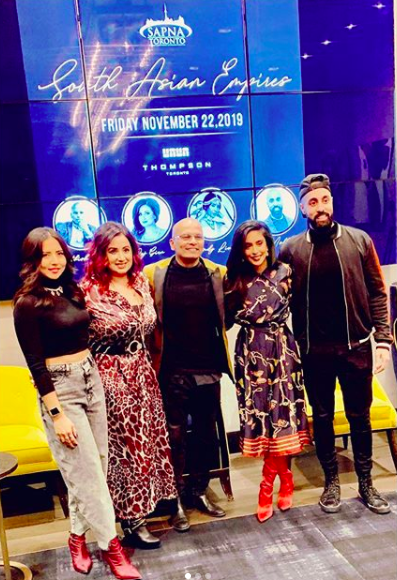
his constant thing kept coming back to me. Identity, identity, identity. Who am I? Who am I allowed to be? Who do I have the guts to be? And I just felt that there needed to be a medium that allowed people that didn’t fit anywhere to have a place to fit. That’s why I call the company Anokhi, which in Hindi means unique or different. Over the last, I would say, 15, 16 years, the reason why we kept going, and this is kind of the empire mindset that I’ve lived with, is because we’re constantly understanding that identity changes.
Our company has gone from Anokhi Vibe to Anokhi magazine to Anokhi Media. And just this summer, we rebranded to Anokhi Life because we wanted to tell much deeper and meaningful stories without feeling like people have to fit into a box. People who don’t know me have a certain perspective of who they think I must be. But to be God’s honest truth, folks, the real person I am is that woman that never forgets at 15 years old, at 3 a.m, I had to go slosh that piss off the walls of a bloody washroom that my parents owned the restaurant of.
So, I’ve never, ever forgotten, you know, what identity actually means. And I feel that’s the key focus. You’ve got to never forget when you’re building an empire, what is the identity of that empire and when does it not become relevant that you have to actually change things up so that you remain relevant, I think that to me is the most important thing.
SB:
When Bobby put this question out on an email, to be honest, I was like, I don’t even know what this empire thing means. I think of Lucious, I think of Cookie, I think of Empire. So, I’m like, what do we answer? And I think nobody starts off day one saying, I’m going to build an empire, right? We start doing things that make us feel like we want to contribute. We want to make a difference. We want to change something. And then some other person makes it clear to us that says hey man that’s an empire. So, my answer starts with sort of this earlier version, like I’m in my forties and I’ve got two very distinct version of myself.
There’s the three to fifteen year old kid born in India, grew up in Singapore, that was labeled dumb and stupid by a little country reinforced by parents that said academics is the only way to judge you since you’re a shitty student, you’re a shitty human. And that was the story that I 100% believed to my core. Then we got on a plane and then we landed Scarborough and then a whole bunch of strangers gave me a whole bunch of new things, like, you’ve got charisma, you’ve got passion, you’ve got things that I’ve never heard before. I’m like who the hell is right because I fundamentally believed everything I heard until I got on the plane and how could after twelve hours in a new neighbourhood, things be so different.
For me, the idea of starting a business or the idea of being on my own, I had no other choice because I had to figure out what makes me do what I do and who am I. The only way to answer that question is to constantly life hacking everything that I thought I was and then give myself permission to become somebody different. And because nine to five, working for somebody wouldn’t give me that opportunity because I’m spending the majority of my life living somebody else’s agenda. Being an entrepreneur or starting my own company was the only way I can figure out how to give myself space to figure this out. So, 25 years later, I get introduced as keynote speaker, the guy who sold companies. etc. But those are all labels and ideas that I created by brute force, by obsessive sort of self life hacking and always keeping sort of behind my head that I can only move forward if the people that are believing in what I’m doing come along for the ride.
So, for me you can’t build an empire without an incredible group of people who want to be in that empire. If I can wake up every single day and say, how do I make everybody that I interact with 1% better in whatever capacity, then I think we have a chance of building an empire. And then we leave it up to smarter folks to decide what that empire means and what it was worth. But I think for me, it’s always been this obsessive nature to make as many people as possible be a little bit different, challenge the labels and then I question everything that doesn’t make you happy.
MYY:
Did you think you would get to the level that you got to or not imply that you hit any ceiling, but did you think you’d get here?
JM:
Did I think I was going to be here? I think that there’s a part of all of us that always thinks we’re capable of more. I think that what I do today, do I think I can do a little bit more tomorrow? That’s kind of the way I look at things. Growing up all my teachers would say, yeah, your sister is way smarter than you. And she gets the 90s and you get like 60, but if you study for ten minutes, you would ace this course. And then growing up, I felt all this pressure. I’ve got all this potential, but like how do I keep it? What are the steps? I think now we’re on that in life. It’s like I don’t need to go to the gym for three hours and get six pack in one day, I need to just go for the 15 minutes that I have and tomorrow I’ll go for 16. And that is in and of itself a success. It’s measuring where I am today and trying to beat where I am today for tomorrow. That’s I think that’s the way I would best answer that question.
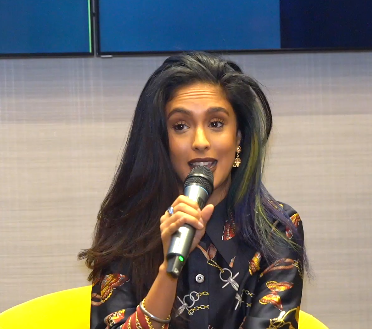
TSL:
Definitely in the beginning, I had no idea what was happening. I still have no idea what’s happening. But I will say that growing up in Punjabi family of four girls, no boys, definitely from the jump, my mom was very like, you are not just a woman, you are everything. You are a man. You are a boss. You are the janitor. You are everything. And that is what you practice doing every single day of your life. And I just kept doing that and I’m still doing it. I still have no idea what’s in store. I don’t feel like I have done what my purpose is I’m still figuring it out every day. I have bad days. I have good days. And I think that is just what it is. Even when people ask, where do you see yourself doing in five years? And I’m like, I don’t even know where I’m going to be tomorrow. I think that’s just the journey. And every day it’s just about being that person that I was trained to be. Just being a woman and like a lion.
MYY:
I think it ties back to what Raj said as well about identity, that our identity is ever shifting, ever changing. I also went through a divorce when I turned 30 but I don’t have a child. So that was a whole different experience. But I understand that.
RG:
So, I actually had no confidence when I came out of my divorce. As I mentioned already, I didn’t really understand who I was and identity has been a very key focus of my entire career. I’ve constantly looked at, you know, who am I, what am I doing? Where is my community going? Are we relevant to them? Are we telling the stories that actually are going to make an impact to the next generation to be able to maybe go that step further down the journey? So, I’ve constantly been questioning everything that I’ve done. I’ve never learned how to have confidence. And like Sandy, I mean, my parents didn’t really bring us up to feel that women were fierce and strong. They brought us up to get us ready to get married. So really, we were kind of meant to fulfill someone else’s role. I never really understood who I needed to be. I have had very debilitating lack of confidence.
Actually, you wouldn’t think so, but all my life. It was in the last two or three years that I actually started realizing and actually looking at the younger generation. I looked at them and I thought, honestly, they are so unapologetic. They literally are just putting themselves out there. And who knows how many people must be criticizing them, but they don’t seem to give a shit. And it’s like I do, I care about every single thing that people think about what I do.
I think that’s kind of, by default of that, how I built my businesses is because I was constantly trying to be the best that I could be and offer the best that I could and the most that I could, because I always felt that maybe, perhaps it wasn’t enough. I think that’s a negative being that I didn’t have confidence actually helped me build what I’ve been able to build. So, to answer that question, do I feel like I’ve done more than I think I could? I’m still trying to figure out if I’ve done enough to be very honest.
I’m still constantly questioning that because there is this innate thing in me that always wonders whether I am enough, whether I have done enough. I think that’s kind of the overarching story of any creative soul and we are all creative souls. We’re all created through God and by God and who’s a greater creator than God? I feel that the journey of the creative mind, of the creative spirit, which is what I am, will constantly be questioning. Am I good enough? Have I done enough? So, I don’t know if I ever will be able to answer that question, but the journey sure is good. I think I’ve done a few things to help people along the way. I think that that helps me feel like a better person if I was to be honest about my true answer.
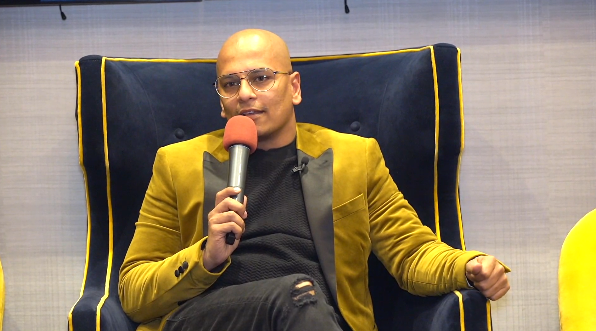
SB:
So, I read a quote a long time ago that said the daydreams and the dreams you have are destiny sort of whispering to you. From a very young age, I knew I was going to make an impact but none of us have a blueprint that we’re given. We’re not given this roadmap to go to school, study this, get this job, do this concert. I think all of us in the room, if we lose titles and we lose the idea of greatness, we’re all meant to create an impact. And if we don’t judge what the impact is, it could be being the best aunt, it could be running a festival. it could be, you know, doing what you’re doing.
The idea of impact, I think, is what I’ve always felt. And I’ve had these dreams like 14, 15-year-old little kid. I see myself in these environments that I’ve never experienced. A vision on stage in Singapore. I remember thinking, I don’t know what a stage is. I don’t know more than eight people. Where did this dream come from? I didn’t see it in a movie last night. I think if we quiet down somehow and eliminate our own labels and sort of give our brain to breathe a little, you actually do start to pay attention to sort of what you can impact. You can actually create so much impact by doing so little once you start calling it an impact.
This journey over the last 25, 30 years of building businesses, whether it’s music, helping people, if I deconstruct all of those things from start-ups to tech, to advertising, etc. In all of those, we’re actually just helping everyday folks to their dream. Whether it’s artists that once they get on stage to share a message, whether it’s the female artists that want to show she can do hip hop and break some doors down, whether it’s the new immigrant who was really smart in India but can’t get a job in Toronto because somebody said you’re a new immigrant. Somehow throughout my entire career and creating impact, we’ve been sort of able to move the needle forward, right?
I had this loose sort of game plan in my head or I’m going to spend most of my 20s challenging my early days and reconstructing. I’m going to spend most of my 30s trying to build a skill or two that gives me some sort of confidence. I studied computer science, but most people would think I’m a great marketer and brand guy but that’s all I learned by making mistakes. And today, you know, in my 40s, we’re opening offices in Brazil helping artists move from starving to making money. We’re teaching people things that schools are not teaching. All of these are just another way to make impact. I think can I continue to make an impact? I hope so.
SCARIEST MOMENT IN THEIR JOURNEY. . .
MYY:
What scared you most during your journey so far?
TSL:
I think the biggest moment when I felt the most scared was when I started seeing myself doing things differently than the rest of the women in my household. My sisters all went to school, got married, had kids and still did all the incredible things. But for me, it was like, I’m going to move to New York. That moment when I actually made that happen was the scariest time because I’ve never lived without my parents. We’ve always been a team. We’ve always hustled to be able to afford our lives. It’s always been paycheck to paycheck. And me making that decision to be like, I’m going to go and try to not live at home, not be a teacher, not being near the kids, and just go to New York City and see what that city has in store. For me, that was the scariest thing.
It took me two years to actually book my ticket and find a place and get out of Toronto. I was just terrified, like just being out of my comfort zone and all of the things that come with that, like not having your mom’s food and not just being around all of your people and literally starting from scratch in another city. If you’re not doing what scares you, you’re not doing the right thing. Being on Instagram, doing the styling stuff, being a teacher, none of that stuff really scared me until I was like, okay I need to do something that really flips my life upside down. The process was long, stressful, even like depressing, like the first two months, like I wouldn’t even call home. I wouldn’t Facetime my parents I wouldn’t Facetime the kids, because it was just so scary just not being around them. The entire journey, they were my cheerleaders. So, I think doing that, as great as it was, it was still the scariest.
SB:
It’s such a complex question as entrepreneurs, like we take pride in beating fear, even though we’re super scared, right? I think probably a few key moments in my life. One was giving myself permission to let go of the version of me that my parents gave me. That was a huge moment for me to move out at a very early age, not have an income and I’ve always taken the role of being the eldest sibling really seriously. When my brother was in his late teens and my sister was in her early teenage years, that was the first time I remember being selfish and it didn’t feel good. I felt horrible about it, but I needed to do that to change. That was probably one of my earliest, most scariest moments and then as I got into corporate as an Indian kid without a company in India, which everybody was like, what? You don’t work for a company in India?
Telling myself that I fit in was another big moment because nobody coaches you or teaches you on how to think that you fit in and we’re told to sort of play the role you’re given. But I walked into play to say, no, I’m the CEO, I’m the creative guy. I got tattoos. I got a MAC, I’m not an IT dude. That took a lot of courage because half the time I was like, the words coming out of my mouth make me feel really nervous. Oh my gosh. That was really, really a fearful moment to get through. Then, you know, knowing that I’ve got a family, but I’m also very good when I’m obsessed with stuff. I can’t do stuff just because I want to do it, I’m not all in, I’m not obsessing over it. If I’m not willing to sacrifice something to get to the next level, I don’t feel the passion. Sort of giving myself permission to stay in the things that make me good, because so much of like the new immigrant mindset is, we’re taught survival first. Do what it takes to make rent, do what it takes to get by, work overtime. So, we’re trained that by our parents. So, I was always thinking small and survival versus abundance and dreaming. That took a lot of courage to sort of switch another switch on.
The sad part is there’s no formula for this shit. Like, you know, parents don’t talk about this stuff. People that are making it don’t write about this stuff. We’re very good at the bling life online but this is the kind of stuff that we have to sort of create a blueprint for your kid and my kids and the next generation. So I think the idea of fear is more about having the guts to tell you some of the things that you’re good at instead of always reminding ourselves the things that were not good at, which is our natural state of mind, sometimes just sucks. So that’s probably the biggest thing for me.
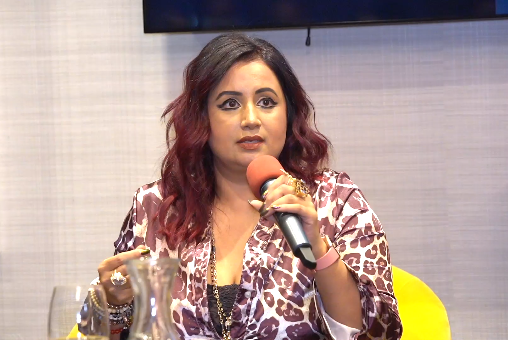
RG:
Well, my entire life has been kind of jollying along on the precipice of fear from my earliest memory. I’ll mention a couple of key ones that scared me enough to actually make a big change in my life. The first one was to have the courage to get divorced, that probably when I look back on my life is the scariest thing I’ve ever done in my life, because I was brought up to believe that once you get married, you’re married. I was brought up to believe that women that got divorced there was something wrong with them.
All of a sudden there I am at 30 and I’ve become her. I’ve become the woman that I always looked at and felt that she wasn’t really right. There’s was something wrong with her. And, you know, by default, God made me her. I became this divorced woman at a time when in our culture, that really was a four-letter word. It was not allowed.
It’s still a very difficult thing to get through as a woman today, especially when you have children, which I had. I think that was the most difficult thing that I’ve ever done, especially since I didn’t really know who I was. I didn’t know how I was going to actually have a living, you know? I think that the greatest gift that I was given was to be a mother that was divorced, because if I wasn’t, I don’t think that I would have ever kept pushing myself the way I did.
My single biggest fear after that has been and did remain until recently was what is my son going to think when he grows up? Like, what a fuck up this this woman is. I got to just change that dialogue in my head. I think that fear is something that in the beginning was so scary for me that I would run the other way, now I look for it. I look for that feeling of fear that tells me that “Raj, you’ve got to do it”. I didn’t know who I was, and I had this kid and I’m like how do I go out there and get a job when I don’t even feel like I’m qualified enough? I didn’t think I was good enough to hired in media so what did I do? I went out and I created a media company. Those are the kinds of things that fear did for me. I was told when I first started the magazine ‘oh you’re just another Desi magazine, there’s tons of you guys out there.’ I thought to myself how am I going to change that dialogue about the brand that I’m trying to create because I’m calling this Anokhi. It’s supposed to be different; it’s supposed to be unique.
So in my infinite wisdom, I took 3 days off and I went to New York to find the biggest star, at that time who was Jennifer Lopez, to get her for my cover and those days you had to get permission to put them on your cover, you couldn’t just slap them on like you can today. I had absolutely no idea how I was going to find a contact to Jennifer Lopez but serendipitously I remember in those days I used to smoke. I was standing outside, I pulled out a ciggy and lit it up and I looked up to God and I said ‘God, if this is what I’m meant to do, you better get me Jennifer Lopez before I leave tomorrow. Within 10 seconds a guy comes around the corner who is her partner in her clothing company. I was standing right outside Jennifer Lopez’s clothing company without even knowing it. Thank God I was a smoker in those days. I changed the dialogue of what it meant to be a brown magazine in those days and I got a lot of flak for it because people said to me, ‘there’s so many talented brown people why are you putting a non-brown person in the cover?’ My mindset was, the biggest star in the universe thinks the brown community is important enough that she’s given me permission to put her on my cover. I think that deserves a round of applause.
CHALLENGES & TRIUMPHS. . .
MYY:
Can you share a time you failed forward and what you learned?
TSL:
I would say failure happens to me every day. When it comes to creating content or what I do on social media. Every day there is a failure and then the next day is mustering up the courage to fix it or to do something differently that won’t result in failure. The one early memory of failure that I have is after I graduated from high school. In high school, I was on the honour roll, I received an award for having an average of over 80% throughout the 4 years and then I went to university. I had really no idea what I wanted to do but because I felt I would be letting down my family if I did anything differently, I went to school for political science. I went to university and I hated what I was learning. I was like this is not how I’m going to achieve and impact or do what I want to do. I enjoyed the process of being in school but the career path that I had chosen it was just everyday realizing that this was a failure. I’m not doing well; my marks are not good. It was a struggle. My marks were something that was not the same as when I was in school.
After the four years, I was so scared to tell my family. I was scared to tell my sisters that I’m not going to pursue politics. My grades were not good enough. So, what am I going to do? You’ll also realize when you’re afraid of letting people down, especially your family, they’re actually a lot more supportive than we think that they are. My sister and her husband are like so do something else. What else do you like? Then that’s when my teaching journey started. That was like a revolutionary experience. I didn’t even know that I would want to be a teacher. I didn’t know I wanted to be in elementary school again. But after doing something that I failed at I realized that there’s another option. It was something that I was good at and I had people to help me on the right path.
RG:
I have to be very honest here with this answer, but I actually never failed. The reason I’m saying this is that every single challenge I’ve had, I’ve overcome it. So, I don’t see that as failure. I think that maybe that’s something worth thinking about. A mind shift in your head, that the failure isn’t a failure if you find a solution for it. Even if that solution is to say that I don’t want to do this, and I need to do something else. I actually have never failed, and I never, ever will.
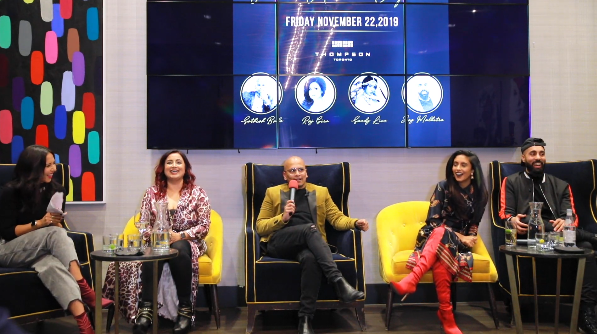
SB:
I second your sentiment completely. I have failed twice in life. One Grade 9 keyboard class, I sucked at it and I actually failed keyboard. Which is weird. I just never showed up. And then I failed calculus in computer science year one. Outside of those two ‘failures’, because someone else decided that I failed, I’ve actually never failed. I’ve had some incredible goals that I’ve been shifting and course correcting.
I kind of look at life like, what do you have this vision of what you want to do? You kind of don’t have a roadmap to do. It’s kind of like 12 years ago my daughter Layla was born and I knew I have a baby girl. I know this is going to be a wonderful young woman one day. I have no idea how to be a parent or a dad. So, I’m figuring things out. Just because she did something bad as a three-year-old doesn’t mean I’m going to return her. I’m going to be her dad; I’m still going to figure things out. And I also realized that before she went to school, nothing she did was bad. There was no limitation, there was no ceiling. Jump from couch to couch, climb the tree, do whatever. I’m like. go, go, go. You take her to school and then somebody says ‘Oh, she’s not good at this, she can’t put sentences together, her writing is not good.
So this whole failure shit is made up by school to grade us to get through life but once you get out of this academic environment, you never fail. You never, ever fail. What you’ve got to learn though is when to course correct. You’ve got to learn when to look at what you’re doing and go, hey, I made a decision, I’m going to make another decision. And it’s very simple. When I talk to young people and they’re stuck and I go, do you know what makes us better than animals? The fact that we can make a decision and then change our mind and make another decision. A tree will always be a tree. A dog will be a dog. We can be an engineer and then a doctor and a writer and a keynote speaker and a scientist and a DJ because we made a decision. So how could you fail, if you have the ability to make the decision? So, make decisions.

